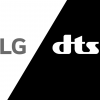The first time Mark Zuckerberg, co-founder and CEO of Facebook, got into social networking netiquette trouble with his online friends was back in September of 2006. Power users of the nascent site were aghast when suddenly, every thing they did on Facebook was instantly and automatically fed to everyone of their Facebook friends and even to friends of friends.
Digital natives have no reasonable expectation of privacy and they are a generation with an exceptional number of fame-seekers. Even so, something about the way Facebook fed their every move to the network really bothered them.
Zuckerberg (who is way smarter than the average bear) was quick to jump on the problem and, within a few days, Facebook added a bunch of controls so that users could opt certain aspect of their lives in or out of the news feed.
With things back on track, the company grew at a blinding pace. By October 2007, Facebook reached over 50 million active users, launched Facebook Platform for Mobile and sold Microsoft 1.6% of itself for 240 million dollars. That puts Facebook’s current valuation at approximately $15 Billion. (Using the same math, you could value MySpace at $65 Billion, but that’s for a different article.)
This brings us to present issue. Just recently, Facebook added a feature (if you can call it that) called Beacon. When users conduct a transaction on a third-party site, Beacon sends the information about the purchase back to their Facebook profile and to the news feeds of all their friends. For example, if you purchase a movie ticket on Fandango.com, your news feed (and the feeds of all your friends) will report the time of your purchase, the name of the movie ticket purchased (with a link to it) and the site where it was purchased (with a link). Sounds great! Doesn’t it? This is just the kind of information Jeff R., a freshman at NYU, wanted his girlfriend to see. She showed up at the theater expecting that the two tickets he purchased online were for the two of them. Sadly, Jeff was taking his other girlfriend, Kim W. to see American Gangster. You can imagine how unfortunately this particular evening turned out.
Facebook says there is plenty of notice — a message supposedly appears on the screen for 20 seconds after your transaction is concluded, warning you that the information is being sent to Facebook. After you log in, there is also a small message at the top of the page. If both messages are ignored, the default behavior is to publish the information.
However — we had a very different experience at our office. Matt, one of our writer/producers, was not logged into any Facebook account. He created a new Fandango account to purchase some movie tickets using a computer in the office. After he completed his purchase, he saw the Facebook box pop-up –this is not an expected behavior. In fact, in that environment it was both startling and disturbing, especially because it said, “Shelly, this information will be sent to Facebook.” Matt said that this experience felt invasive, as if his private information was being broadcast (let alone to the wrong account). Matt told me that he read the dialog box and saw an option to cancel the transmission but before he could click on it, the box disappeared. Not wanting me to think that he was using my Fandango account to purchase movie tickets without my consent, Matt called me and asked me to logon to Facebook. As it turns out I was already logged in from my laptop, but I didn’t see the warning message that was supposed to appear in my account.
As you can imagine, the outcry from Facebook users has been loud and fierce. Over 42,000 people have signed a petition at moveon.org against Beacon.
By Friday, Facebook fixed some of the problem. They reverse the default so that nothing gets fed to the network unless users opt-in for each specific event. This, of course, completely destroys any advertising or marketing value to the service, but it may make some Facebook users feel better. But, there’s still no universal opt-out button for Beacon so this is far from over.
Facebook users are significantly different than MySpace users. Digital natives have seamlessly integrated Facebook into their lives. Unlike the little news feed glitch back in 2006, this particular issue has the ability to truly undermine Facebook’s core consumer value proposition. It’s one thing to ask someone to join your promotional army. Conscripting them without their consent is something else entirely.
About the Author: Shelly Palmer is Managing Director of Advanced Media Ventures Group LLC and the author of Television Disrupted: The Transition from Network to Networked TV (2006, Focal Press). Shelly is also the 1st vice president of the National Academy of Television Arts & Sciences, NY and Chairman of the Advanced Media Committee of the Emmy Awards. You can read Shelly’s blog at http://www.emmyadvancedmedia.com. Shelly can be reached at shelly@palmer.net.





























